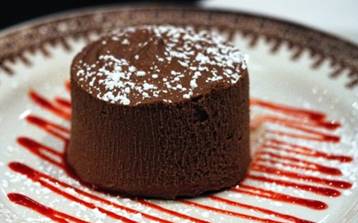CHOCOLATE AND RESEARCH STUDIES
Mayas, Incas, and Aztecs already knew the power of chocolate in influencing feelings and sensations and they touted it «a gift of the gods». Chocolate is still now considered an aphrodisiac and its orosensory properties, mediated by palatability, have a significant influence over eating. Chocolate consumption is widespread in most developed countries and many people experiment a periodic motivation aimed at gaining chocolate as a desired food. We can call these people «chocolate addicted». Difference in sensory properties and presentation can influence the experience of chocolate.
What kind of feelings do you experience looking at this picture? Do you feel as a «chocolate addicted»?

If you have answered yes don’t worry! It’s not a negative thing. Many people are «chocolate addicted». As a comfort food, in fact, chocolate has the power to give us a boost of energy and immediate satisfaction, providing a sense of both physical and emotional comfort.
A combination of chocolate’s sensory characteristics, appealing in texture and aroma, nutrient composition, and psychoactive ingredients makes up the model of the relationship between chocolate and mood. In scientific literature, along with known companies studies, there is evidence of chocolate effects on mood.
Chocolate and apple (Macht and Dettmer 2006) Chocolate deprivation (Moreno-Dominguez et al. 2012) Back home
See it as web Page at:

